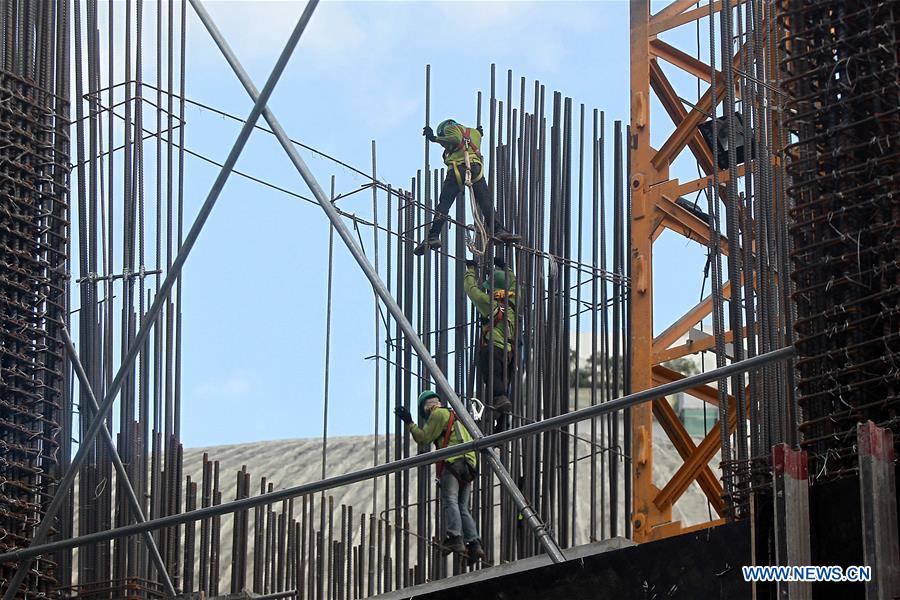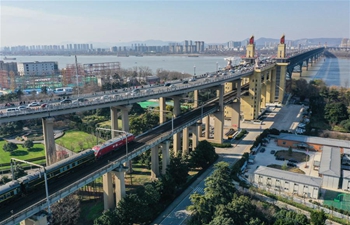
Laborers work at a construction site in Quezon City, the Philippines, Jan. 4, 2019. The inflation in the Philippines decelerated to 5.1 percent in December 2018 from 6 percent in November 2018 amid a sharp drop in global oil prices, higher domestic rice supply and a slight recovery of the peso, the Philippine Statistics Authority (PSA) said on Friday. (Xinhua/Rouelle Umali)
MANILA, Jan. 4 (Xinhua) -- The inflation in the Philippines decelerated to 5.1 percent in December 2018 from 6 percent in November 2018 amid a sharp drop in global oil prices, higher domestic rice supply and a slight recovery of the peso, the Philippine Statistics Authority (PSA) said on Friday.
The inflation rate in December 2017 was recorded at 2.9 percent.
"The slowdown of inflation in December 2018 was mainly driven by the slower annual increments in the indices of food and non-alcoholic beverages at 6.7 percent and transport at 4 percent," the PSA said in a statement.
The PSA added that lower annual increases in the prices of commodity groups such as alcoholic beverages and tobacco, housing, water, electricity, gas and other fuels, furnishing, household equipment and routine maintenance of the house and the like also contributed to the downtrend.
The December inflation data was lower than the projected range of the Philippine central bank Bangko Sentral ng Pilipinas of 5.2 percent to 6 percent.
However, 5.1 percent was still beyond the Philippine government's target inflation range of 2 to 4 percent.
The PSA said the annual average inflation at the national level for 2018 picked up by 5.2 percent from 2.9 percent in 2017.
Compared to 2017 average rates, the PSA said the annual average hikes in 2018 were higher in the indices of all the commodity groups, except for clothing and footwear, communication, and education.
"The annual average inflation in 2018 for clothing and footwear, and communication were the same as their respective 2017 annual average inflation rates of 2.4 percent and 0.3 percent while that for education dropped by 0.8 percent from 2.5 percent in 2017," the PSA said.

















